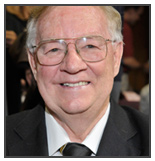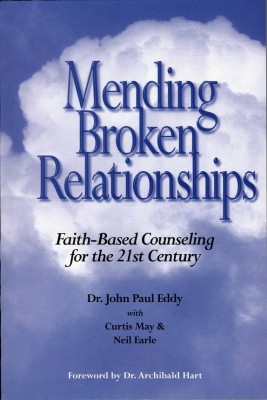Digital Mania?
By Neil Earle
The recent all-out press coverage given to missing Flight 370 has
spurred some interesting feedback in the communications business.

FOX-TV’s popular Bill O’Reilly (pictured, left) has referred to the
intense coverage as “pandering” to the audience’s
sensationalism and immaturity and people’s love of a mystery.
Parade magazine satirized the coverage with a cartoon showing
a crystal ball gazer as one of the “panel of experts.”
Of course there are real human issues here with the relatives of the
passengers trying to navigate a genuine tragedy but…what does
this media overkill tell us about our tweeting Facebook culture – the
new era we are now in whether we like it or not.
It’s been said that people my age, near-retiring baby boomers,
are about to feel like strangers, immigrants even, in our own
culture. Technology is moving too fast even for our innovative
trend-setting generation.

Is there a voice of sanity in all this?
Yes there is. Let’s meet the former Dean of Fuller Seminary’s
School of Psychology, Dr. Archibald Hart (pictured, right). His new book, The
Digital Invasion, co-authored along with his daughter, Dr. Sylvia
Hart Fredj, comes just in time.
Connected…or Not?
First off, Dr. Hart is no technology-hater. Dr. Hart tells us that
as early as 1969 he had persuaded his university to purchase an
early-version computer. The author of The Anxiety Cure and
Stress and Your Child has now turned his attention on what he
calls the dark side of this enhanced technology that is sweeping over
us like a cultural tsunami.
“As a culture it is assumed that we are more ‘connected’
today than we have ever been in history, but there is evidence to
suggest that we are more ‘disconnected” than ever
before,” write the authors. ”Ask a dating couple whether
they could effectively ‘date’ if the only way they could
connect was using Skype on a computer screen and they would tell you,
‘No way’” (page 41).
This is the kind of eminent common sense that runs through most of
this book. A glance at the chapter subheads makes that clear. There
are “Dos and Don’ts for Parents of Multitasking
Teenagers,” “Addiction Risk for Video Games,” “Ten
Steps to Digital Well-Being,” and “Seven Ways to
Cultivate Silence and Solitude.” Dr. Arch Hart is already known
for his practical writing on stress-relief for pastors and
Christians. Now he and his daughter urge us to be watchful in a
digital world that the Harts feel has the potential to rewire our
brains, making us ever more anxious and lonely when disconnected from
our gadgetry.

Recovery Work
In that vein the authors of The Digital Invasion offer Twelve
Ways to Improve Communications of the face-to-face kind, you know,
the kind Moses had with God. We have condensed them to ten. The
book’s goal is to get us back to authentic connection,
which the writer’s reference as “the core of
psychological well-being…the essential quality of growth
fostering and healing relationships.” Healing relationships is
a subject that strikes home to churches and pastors. One of our
para-church ministries offers a book we helped write titled Mending
Broken Relationships. (Write for it at atimetoreconcile.org.)
Here are the Harts’ recommendations, with our own pastoral
insights as field-ministers added as follow-up.
- Plan to Relax More. Yes, sounds simple, but in today’s
stressed out world you have to be intentional about it. We
can’t deeply engage with another person or even learn something
new that we really need to know in this digital tsunami where our
minds are overflowing like teacups.
- Stay Present. That is, learn to converse in the moment, not
looking for a text message. Years ago psychologist H. Ross Campbell
stated that parents love their children but kids don’t feel
loved. Why? Lack of “focused attention.” That’s a
period set aside where you give the child your full interest and
undivided concentration. Ross wrote that back in the 1980s. Is it
better now?
- Cultivate inner silence. How wise was the Psalmists in
writing, “I have quietened myself as a weaned child.”
Meditation, exercise, walking, short naps – these have been
recommended by our best doctors for years. It takes planning to work
them in to our busy lives.
- Increase positivity. Find something about another person to
praise – a family member, a workmate, or the kids at Starbucks
and ladies at the check-out counter. Praise genuinely. Praise is a
terrific relationship lubricant that can rarely be done well on
text. THT (Think happy Thoughts) doesn’t quite keep pace with
the stirring and repetitive hearty counsel found in Joshua 1, for
example.
- Reflect often on your deepest values. These points will work
when by one's self – creating what the Harts call “God space.”
“I meditate on you in my bed and in the night watches,”
sang the Psalmist. He was busy counting his blessings which, as the
old song said, are better than counting sheep. The motivational guru
Wayne Dyer typically asks his audience of they can list five things
they are thankful for, right now.
- Access a Pleasant Memory. Especially when involved in tense
and stressful times. At the harried workplace or during the family
meal get things going with “Do you remember the time when we
all…”.
- Observe nonverbal cues. In real-time contact be alert to what
is coming at you. The around. A clenched fist is a dead giveaway but
so is the glassy stare and set jaw. Most busy people have to be
“debriefed” before they will listen to what you have to
say. Pastors know that people aren’t really ready to hear a
sermon when attendees walk in the front door. They are busy
pressurized people. Maybe they’ve had a fight with a spouse or
been cut off on the freeway or discovered their tires need air.
Stuff happens. They need some “settling in” time from
either a greeter at the door or a moving hymn. Refer back to Point
1.
- Express appreciation. Anything rare has value – praise is
like appreciation, one of the rarest things we experience each day.
The text messages BR and BOL (Best of Luck and Best of Regards) seem
small potatoes compared to Numbers 6:24-26. What does it say? Stop.
Right now. Do you have time to look it up?
- Show empathy. Jesus had great empathy for the rich young
ruler who was about to turn away from Him. He offered the best cut
of bread to Judas Iscariot. He effectively restored his braggadocio
impulsive disciple Peter. Jesus obviously knew how to let people
know he really really cared. We are his disciples. We, too, can show
forth the love down deep inside us. TMOT – Trust me on this.
Tune the world out for a while and tune in that still small voice of
God inside you.
- Speak slowly/Listen deeply. That’s exactly what’s
missing in so much digital communication today and the clipped
conversations and snide quickie remarks and know-it-all retorts can
spill over into our daily conversations – if we let it. There is
a better way.
As Dr. Hart says, five real friends are better than 500 on Facebook.
We all know this. So why not resolve to move out of Fantasy Addict
Time and into what the Harts call “Real Time.” We are
still in control of our lives …right? Right!


